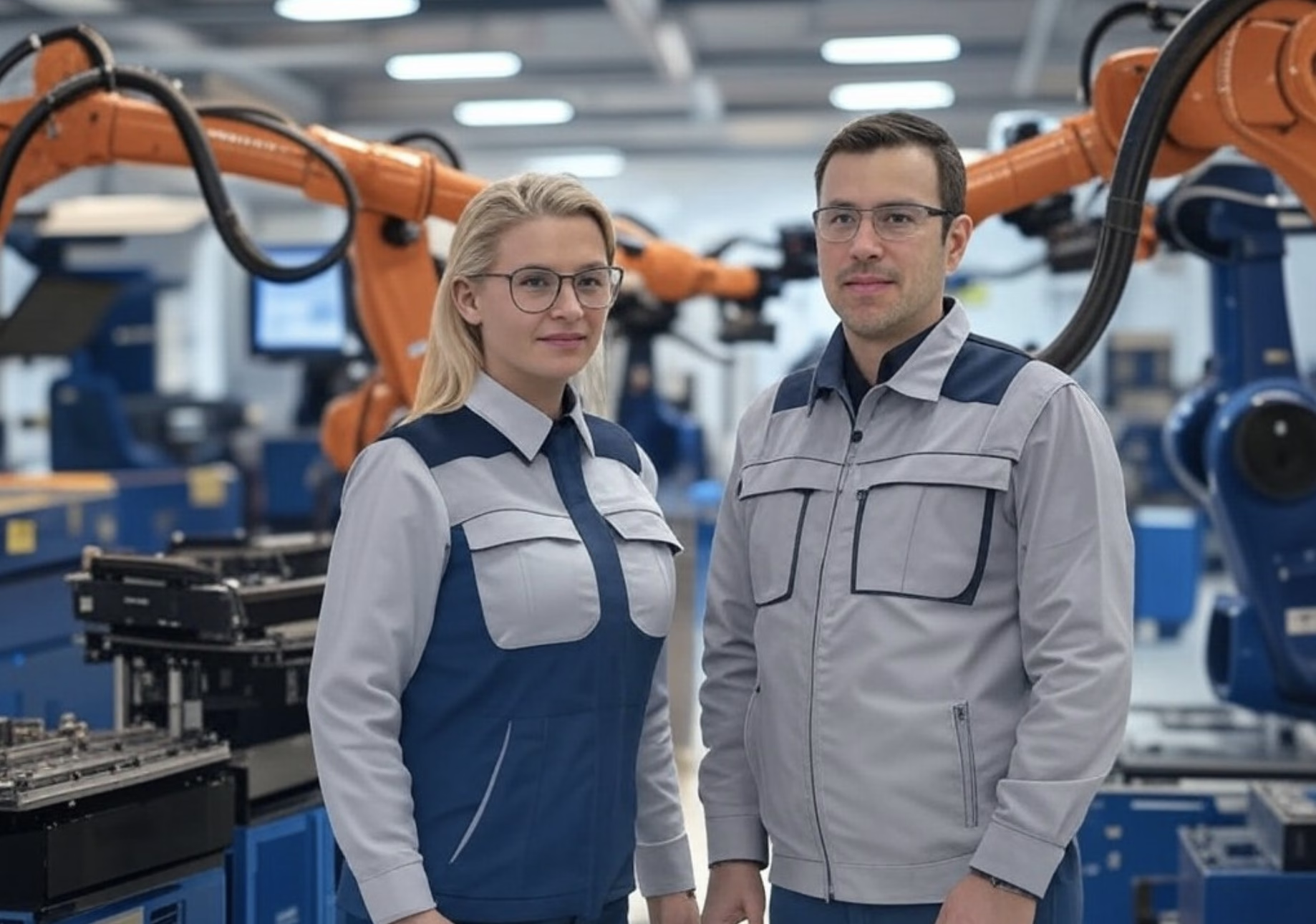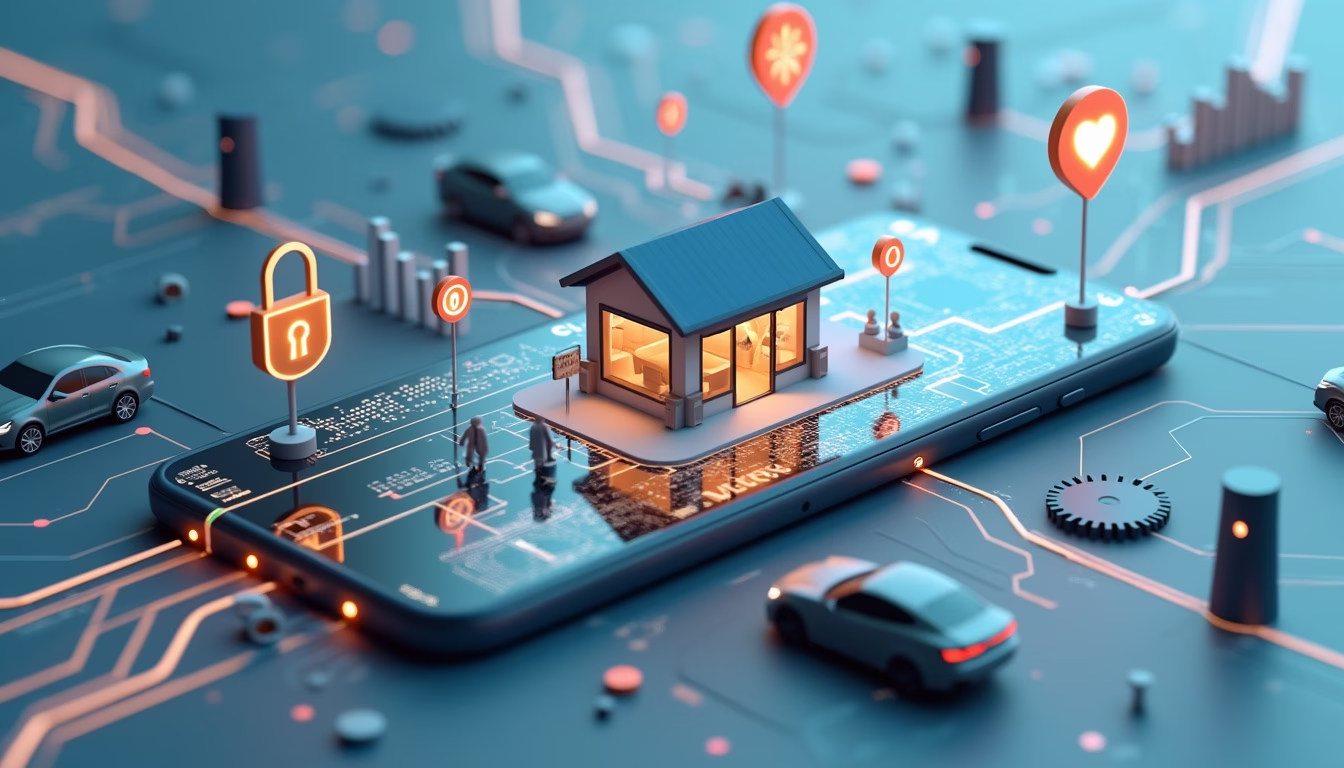The field service industry is changing quickly and continuously. New technologies are reshaping how businesses work, how they deliver service, and how they interact with customers. If you’re leading a field service team or making key decisions for your company, these changes bring both challenges and opportunities. Adapting to them is crucial for staying competitive. The businesses that manage to keep up will streamline operations, improve customer satisfaction, and achieve better results. At Sirocco, we’ve helped many businesses like yours navigate these shifts. By partnering with companies such as Salesforce, HubSpot, and Microsoft, we implement solutions that work today while preparing you for what’s coming next. Here’s a closer look at some of the key trends expected to drive change in 2025, and how your business can make the most of them.
AI & Machine Learning = Smarter Service
Artificial intelligence and machine learning are becoming essential in field service. In 2025, these technologies will help you make smarter decisions and improve efficiency. Predictive maintenance is one example. Salesforce Field Service integrates AI-powered predictive maintenance to identify potential equipment failures, enabling businesses to address issues before they cause downtime. PwC reports that predictive maintenance can reduce costs by 25% and increase equipment uptime by 20%. Not too shabby!
AI is also improving technician scheduling. With Microsoft Dynamics 365 Field Service, smart algorithms help optimise routes based on traffic, weather, and technician availability. The upcoming release of Dynamics 365 Field Service will introduce new AI-driven tools like Copilot, summarising work orders and generating responses in natural language. These features, combined with real-time data, make it easier for teams to adapt to changing conditions and boost first-time fix rates. Aberdeen Group found that AI-driven scheduling boosts first-time fix rates by 11% and reduces operational costs by 12%. At Sirocco, we help integrate these technologies into your workflows, ensuring you benefit from improved scheduling and greater efficiency.
And – of course – AI also plays a big role in customer service. HubSpot, for instance, offer AI-driven tools like chatbots, knowledge bases, and even autonomous AI agents that can handle customer inquiries and appointment scheduling. In fact, Gartner predicts that 70% of customer interactions will be AI-driven this year. Early adopters are already seeing faster responses and stronger customer connections. Salesforce’s Einstein, as another AI example, helps technicians by generating real-time insights, including asset history and customer preferences. This ensures every interaction is informed and efficient, saving time while delivering a personalised experience. We can help you stay ahead of the curve.
IoT: Real-time data for better decisions
The Internet of Things (IoT) is central to field service in 2025. IoT enables real-time monitoring of equipment, better communication, and more informed decisions. Microsoft Dynamics 365 integrates IoT data, allowing businesses to track the health of assets and monitor performance. This integration helps to spot potential issues early, preventing costly breakdowns. McKinsey shows that IoT-enabled monitoring can cut downtime by 30%, a huge advantage in any industry. IoT also helps track technician location, job progress, and inventory in real-time. This is where Salesforce Field Service really shines. Its real-time technician tracking and job management features ensure that businesses have full visibility into operations, so managers can adjust schedules and routes quickly. When you have the data you need right away, it’s easier to stay on top of operations. From a customer experience standpoint, IoT adds value by offering transparency. Real-time updates on job status and timelines keep customers informed, helping build trust. Sirocco uses tools like MuleSoft to integrate IoT data seamlessly into your operations, ensuring you can deliver the kind of connected experience customers expect.
Sustainability: Smarter, greener practices
Sustainability is becoming a priority for field service organisations. Tools like Salesforce and Microsoft Dynamics 365 enable route optimisation to reduce fuel consumption and carbon footprints. AI-powered asset management minimises emergency repairs, cutting costs and extending asset lifespans. Visual remote assistance, such as Microsoft HoloLens, allows technicians to address issues without unnecessary travel, further reducing environmental impact. But think of sustainability as more than a goal. Let it be your competitive advantage. With 93% of organisations prioritising greener practices, staying ahead means adopting solutions that balance efficiency with environmental responsibility.
Augmented & Virtual Reality: Enhancing service delivery
AR and VR are transforming how field service teams deliver solutions. These technologies are no longer optional. They’re practical tools that can improve how technicians work and how customers experience your service. With AR, technicians can get remote assistance for complex tasks. Modern AR technology can also provide step-by-step guidance, reducing mistakes and helping your technicians complete jobs faster. Deloitte estimates that AR can cut training costs by 30%. HubSpot also supports AR and VR-based customer interactions. Through its Service Hub, businesses can engage customers with rich media like video tutorials and remote troubleshooting, providing more personalised service. This approach helps reduce repeat visits and enhances customer satisfaction by empowering them with easy-to-understand solutions. VR is also changing training. New recruits can practice in a virtual environment, which speeds up the learning process and improves safety. The VR/AR Association reports that VR training can reduce onboarding time by 60%. But it doesn’t stop there. AR also helps improve communication with customers. By using AR to visually explain repairs and processes, you can build trust and enhance satisfaction. Customers appreciate seeing what’s happening, and it leads to better long-term relationships.
Customer experience: Proactive & personalised service
In 2025, customer experience is more important than ever. Businesses that anticipate customer needs and provide proactive, personalised service will stand out. Salesforce Service Cloud enables personalised service by using AI to analyse customer data, delivering insights that help you understand your customers better. With this information, you can offer more tailored service, helping to build long-term relationships. Customising service based on customer data helps build stronger relationships. It shows that you understand their needs and are willing to go the extra mile. Personalisation is becoming the norm, and it’s a competitive advantage for businesses that embrace it. HubSpot’s CRM platform allows companies to deliver personalised outreach and automated workflows that improve the customer experience.
Self-service portals are another key component of improving customer experience. Customers want to manage their own requests, schedule appointments, and find troubleshooting resources on their own. Forrester research shows that 63% of customers prefer resolving issues through self-service. Salesforce and HubSpot both offer powerful self-service options that reduce the need for direct interaction and boost customer satisfaction. We would love the opportunity to show you how.
The Workforce challenge? Upskilling for the future.
As technology evolves, so do the skills required in field service. Attracting, retaining, and upskilling talent is more important than ever. The World Economic Forum estimates that 50% of employees will need reskilling by 2025 due to technological advancements. To stay competitive, field service teams must continue training on AI, IoT, AR, and other emerging technologies. Microsoft Dynamics 365 Field Service, for example, includes training and knowledge-sharing features that support upskilling within your teams. With integrated learning resources, your technicians can stay current on the latest tools and technologies, ensuring they are ready for new challenges. Investing in training helps your team stay current and capable. It also fosters a culture of growth and ensures your technicians are ready for new challenges. At the same time, offering flexible work arrangements and supporting diversity initiatives will improve retention and help build stronger teams.
Leading for the future of Field Service
As we have seen, the future of field service is being shaped by AI, IoT, AR, and a relentless focus on customer experience. These technologies are not just enhancing efficiency; they are redefining what’s possible in customer satisfaction and operational excellence. However, disconnected processes and siloed data remain significant hurdles. Salesforce research shows that 77% of mobile workers need better access to data from other departments to excel. At Sirocco, we help you bridge these gaps. By integrating unified data views and streamlining workflows, we enable your teams to focus on what matters: delivering exceptional service. Whether adopting new technologies or refining existing systems, we ensure your operations are future-ready. Our approach starts with processes and data. Technology is the tool, not the goal.
Ready to optimise your field service operations and lead in 2025? Contact us today to find out how we can help you stay ahead.










